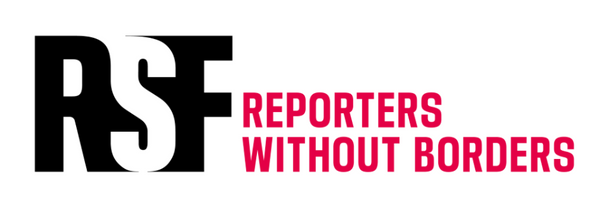


Let justice be done, though the world perish
Despite what the 2023 press freedom ranking by Reporters Without Borders (RSF) says of Nigeria, it remains a bog of danger for journalists, who, in pursuit of truth, clash with the political leadership. While the ranking seems to have bumped Nigeria up six places from that of 2022, it undoubtedly reflects little of the experiences of journalists on the ground.
Even Reporters Without Borders did concede this, noting, “Nigeria is one of West Africa’s most dangerous and difficult countries for journalists, who are often monitored, attacked and arbitrarily arrested, as was the case during the 2023 elections.”
No better example then, than the case of Segun Olatunji, Editor of FirstNews, the latest victim of the lack of press freedom in Nigeria. On March 15, he was taken from his home in Lagos by military personnel all the way to the country’s capital for no just cause. This, the military denied, until it felt the heat of criticism, and admitted to the abduction.
Nigeria’s history is written with the blood of journalists who refused to kowtow to the greed of those in power. Fortunately, Segun Olatunji will not be added to the number thanks to the determination of his peers, and other human rights bodies, to avoid another Dadiyata archetype as experienced in Kaduna.
In order to avoid the refrain of blood in hallways of the press, the administration of President Tinubu must insist on countering this narrative. Renewed Hope, he says, and the journalists expect this in full. He must not succumb to the basest impulses as Former President Goodluck Jonathan did towards the end of his career, when the military accosted media houses across the countries, in a major clampdown against press freedom; a witch-hunt that could not undo his loss that was to come.
If the military is not brought under subjection, it risks thinking itself above the Executive. Lethargy on the part of the administration is dangerous due to the contagious nature of coups in Africa today. President Tinubu must side with press freedom to also protect his administration.
It is commendable the role played by bodies comprising of the Newspapers Proprietors Association of Nigeria (NPAN), Nigerian Press Organisations (NPO), Broadcasting Organisations of Nigeria (BON), President, Nigerian Guild of Editors (NGE), National President, Nigeria Union of Journalists (NUJ), Guild of Corporate Online Publishers (GOCOP), International Press Institute, Nigeria Chapter (IPI Nigeria), Media Rights Agenda (MRA), International Press Centre (IPC) and the Socio-Economic Rights & Accountability Project (SERAP) in pursuit of prosecution of those responsible for the latest goof.
In the statement seen by Nigerian NewsDirect recently, the aggrieved bodies and associations demanded a speedy, public, transparent and independent investigation into this act of barbarism displayed by military personnel as well as the brazen disregard for the Constitution and the Government’s obligations under relevant domestic laws and international instruments.
They stated that all persons within and outside the military who are found to have been connected with this unacceptable violation of the rights of the journalist and the Constitution, including those who effected Mr. Olatunji’s arrest, detention and torture, those who directly commanded them, and those who ordered or instigated the action, should be prosecuted before the appropriate court and punished to the full extent of the Law.
Noting that the Chief of Defence Intelligence (CDI), Major General Emmanuel Undiandeye, reportedly ordered the operation that culminated in Mr Olatunji’s abduction, torture, and detention while the Chief of Defence Staff, General Christopher Musa, to whom the CDI reports, was also reportedly aware of the operation but joined the CDI to claim for days that the journalist was not in their custody. They need to be held accountable for their roles in the matter.
“The Federal Government should make an unequivocal public commitment to respect and defend the rights and freedoms of journalists and other media practitioners to carry out their professional duties in a safe and conducive environment in accordance with Sections 22 and 39 of the 1999 Constitution, as amended, and advise all law enforcement, security, intelligence, military and other agencies accordingly.
“Should the Federal Government fail to respond positively to all these demands within 14 days from today, the undersigned media associations and professional bodies as well as civil society organisations will pursue all available mechanisms at the national, regional and international levels to ensure compliance with our demands,” the statement read.
Nobody chooses martyrdom unless they are pushed to it. Nigerian NewsDirect trusts that this administration is not all talk and no action, based on the immediate removal of fuel subsidy from the first day of assuming power. However, lethargy must be kicked out. Prosecution need not be drawn out over years as is usually the case in Nigeria. The abductors of Segun Olatunji must be fished out and made an example of. To this we say, fiat iustitia, et pereat mundus: let justice be done, though the world perish.



